Submitted by WA Contents
MVRDV designs urban splash in Gwangju to become a social catalyst for public spaces
Korea, South Architecture News - Dec 01, 2017 - 13:33 21253 views

MVRDV has created a big urban splash at the heart of Gwangju in South Korea to become a "social catalyst" for other public spaces. Written with big letters and different kinds of colouring techniques, the street is pedestrianized with an urban folly titled "I LOVE STREET", which was completely realised with the participation of Seosuk Elementary School kids.
Developed as one of 100 follies throughout the city of Gwangju within the scope of the Gwangju Folly Festival, now in its third edition, the other follies designed by artists and architects include the works of Peter Eisenmann, David Adjaye, Ai Wei Wei, Superflex and Rem Koolhaas. MVRDV realized the folly with Gongjeong Construction and the opening event took place on 30th November 2017.

World-renowned Dutch firm MVRDV created a 960-square-metre permanent intervention, exploring how architecture contributes to urban regeneration by playing both decorative and functional roles in public spaces. The project was completely realised with a participatory process by Seosuk Elementary School kids.

"Gwangju is known for its industrial qualities. A city with a booming car industry situated between beautiful surroundings of cherry blossoms and nature, but in recent years has become dominated by cars and lacks many pedestrianised zones, especially in its old part of town," said MVRDV.
"From 2011, Gwangju, follies located all across Gwangju are designed to achieve urban regeneration by providing a cultural rebirth to its downtown area after 40 years of rapid industrial growth."
"These interventions are a step in refocusing attention on abandoned areas of the city with the potential to transform them into more livable and pleasant areas as they develop in time," added the firm.
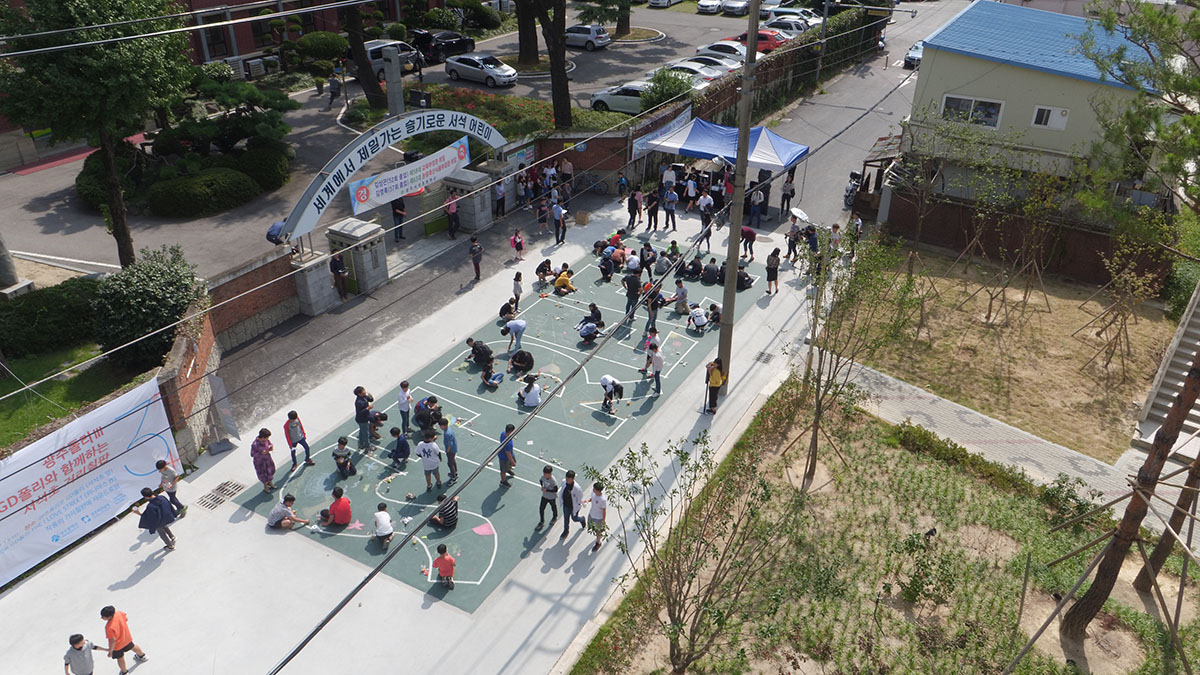
"With this new street, we show that follies can make sense and that they can embody larger planning issues. That they can test directions and communicate that with a wider audience," said Winy Maas, MVRDV co-founder.
MVRDV analysed the previous follies so far and how these urban interventions could further improve the urban realm of Gwangju. A certain lack of people involved with the folly’s and a general limited public space in the city influenced the design of MVRDV's contribution to the folly tradition.
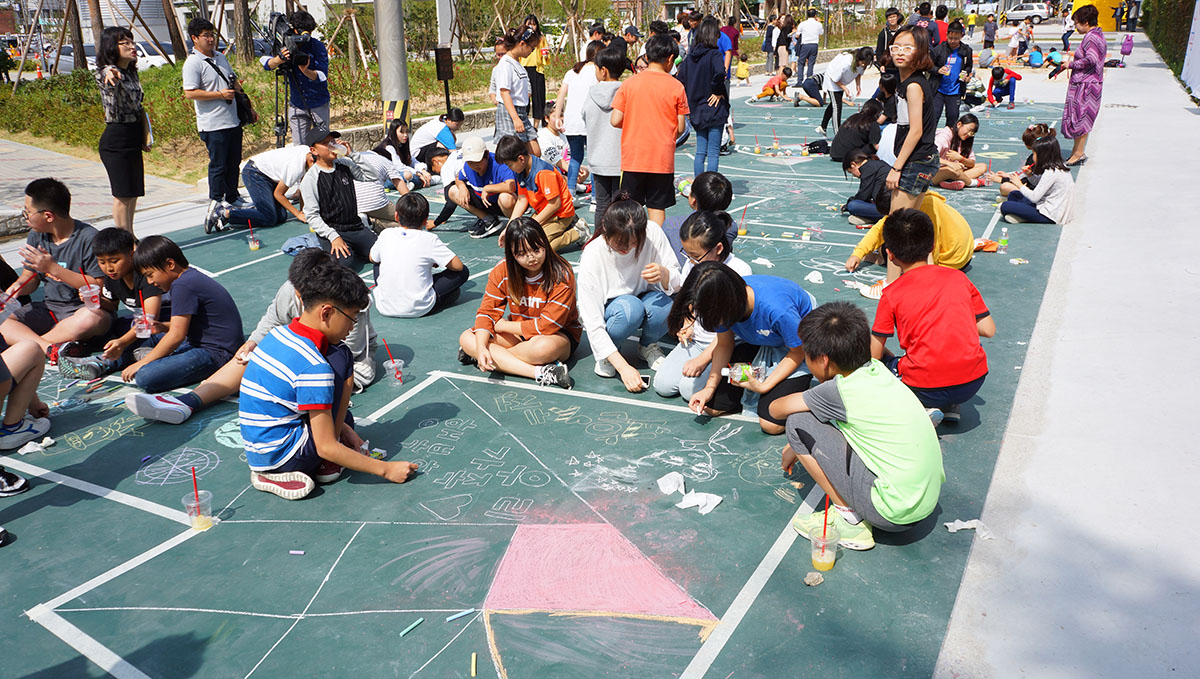
The I LOVE STREET Folly is designed as part of participatory social design process informed by residents of the neighbourhood opposed to yet another street turned into a car-only zone.
The project was developed in collaboration with students of Seosuk Elementary School, who contributed with drawings that expressed wishes that their street would be made of grass, fountain, sand, wood, a trampoline and a big chalkboard.
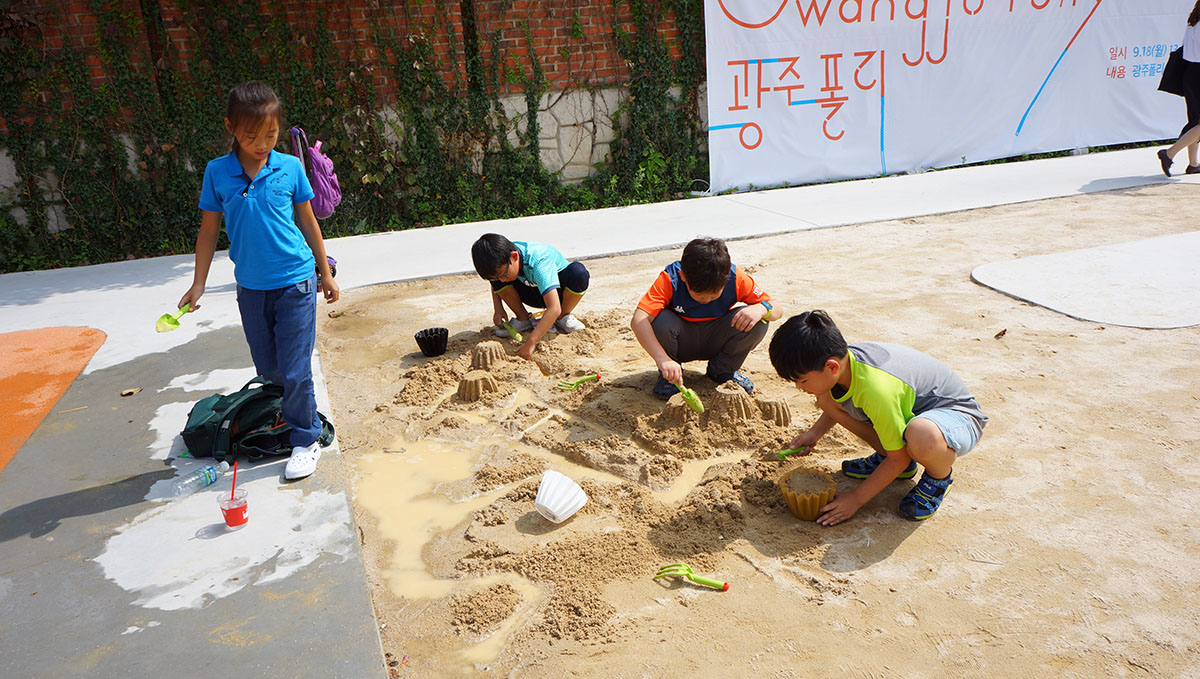
MVRDV added stairs to this collection all forming a pedestrian area of multiple pavements that can be used for sitting, painting, jumping and playing. The chalkboard is a constantly changing surface activated by continual use, whilst the stairs which act as a tribune that presents the perfect viewing point of activities and indeed, selfie spot for the street.
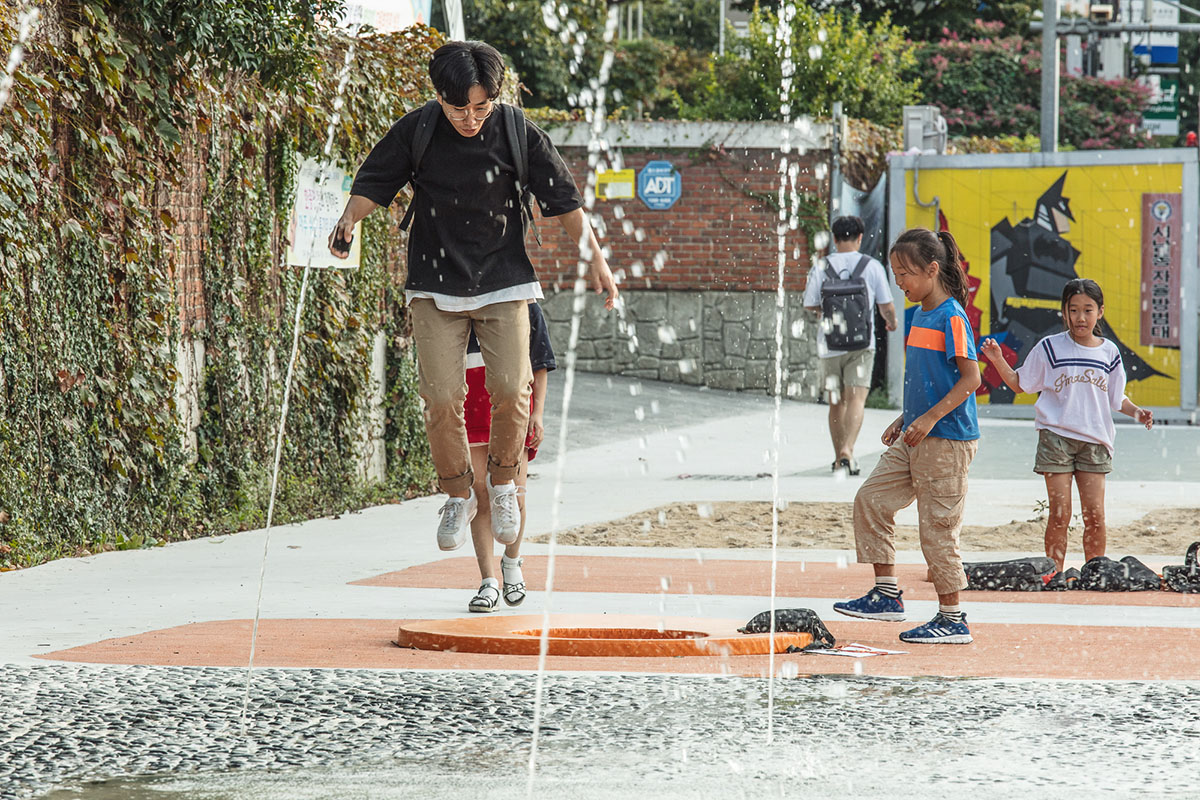
"I LOVE Gwangju Folly can become so many things - I LOVE Korea, I LOVE Gwangju I LOVE Walking or I LOVE Dancing," added Maas.
"The folly is a small intervention to make the city more sociable, fun and attractive, but more importantly, as a direct communication to further develop collective enthusiasm for more pedestrian spaces in Gwangju."
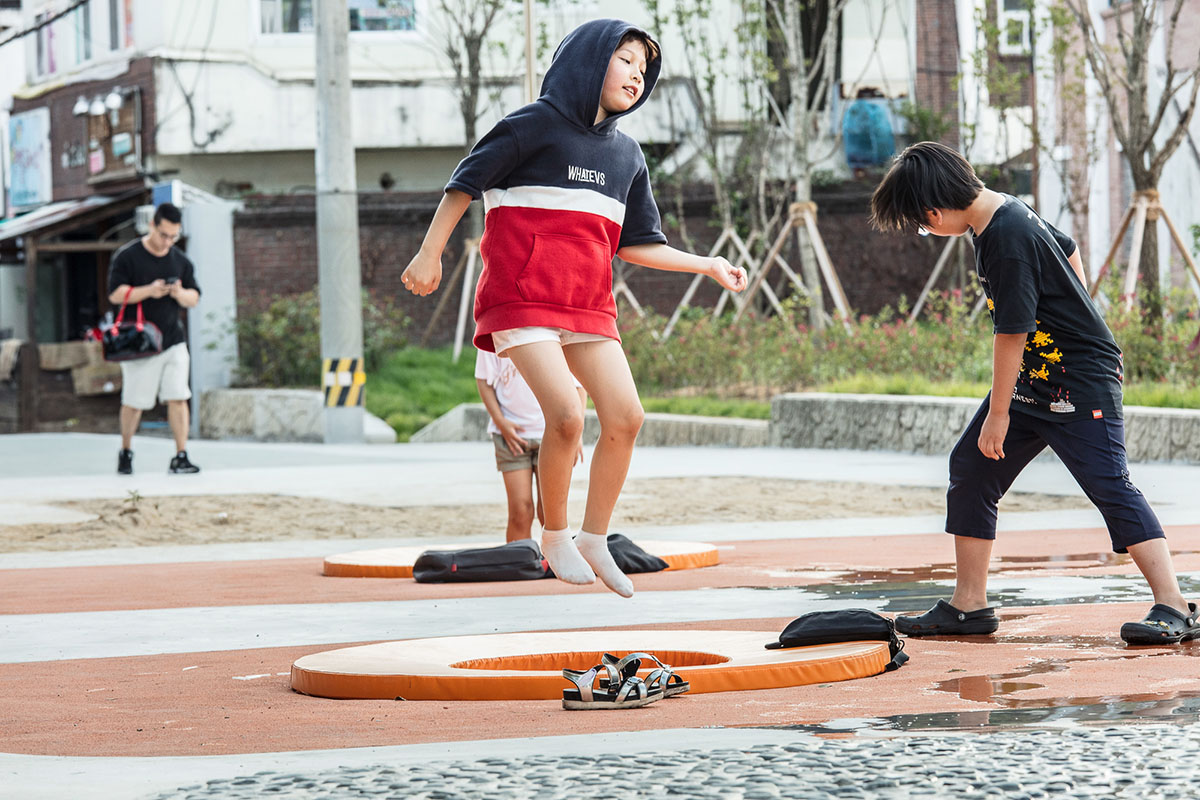
By shaping these pavements in a series of letters that spell the word L-O-V-E, a text appears as a symbolic representation of people’s love for many things located in a square for everyone’s use that can be adapted and painted in the future as a canvas.
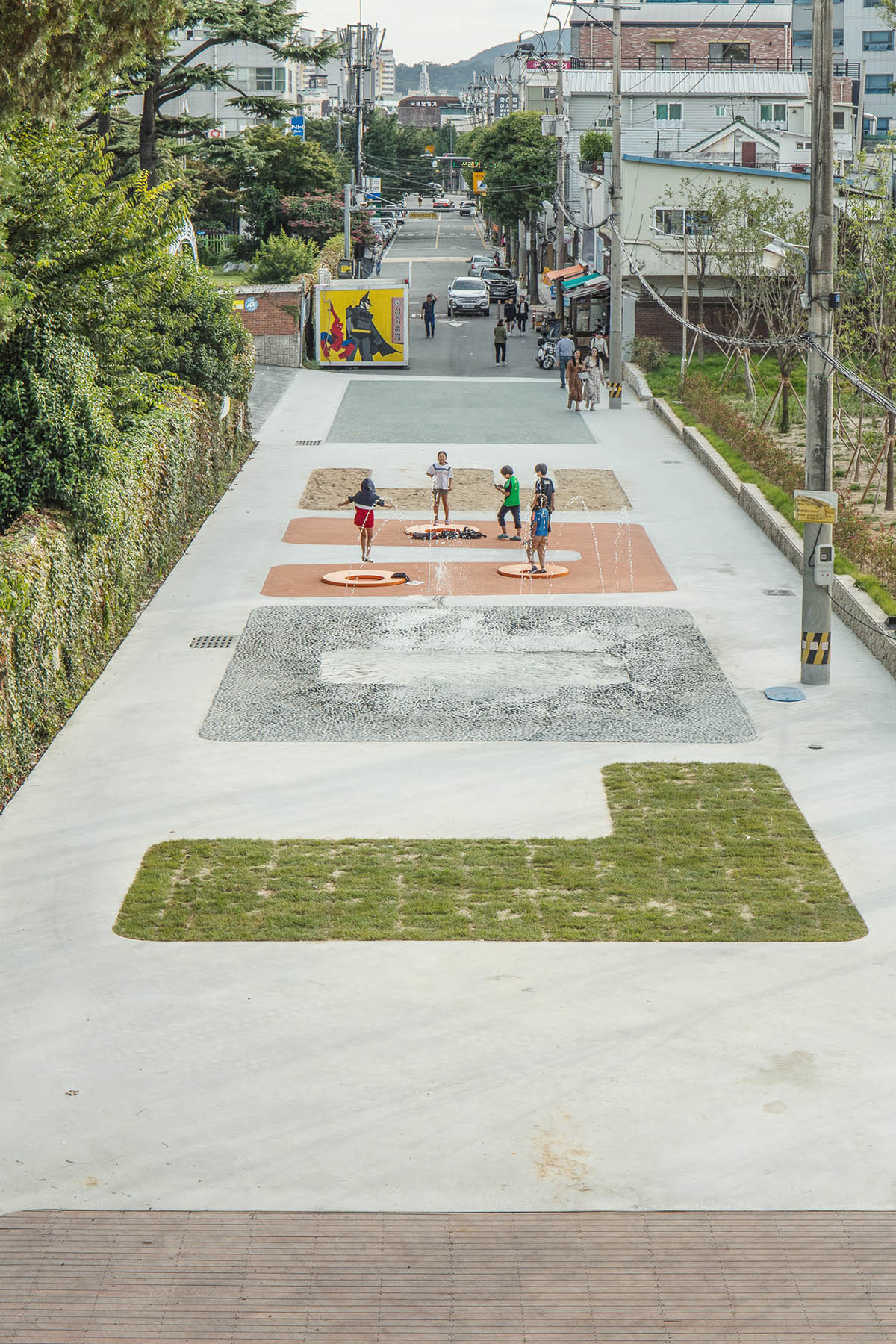
This tribute to the city becomes a street for encounters whilst re-introducing the urban village history of its location on Dongmyeong-ro Road, which made way for cars due to urbanization. In a sense, the folly acts as a commemoration to these former domestic buildings and returning it to a car-free area.
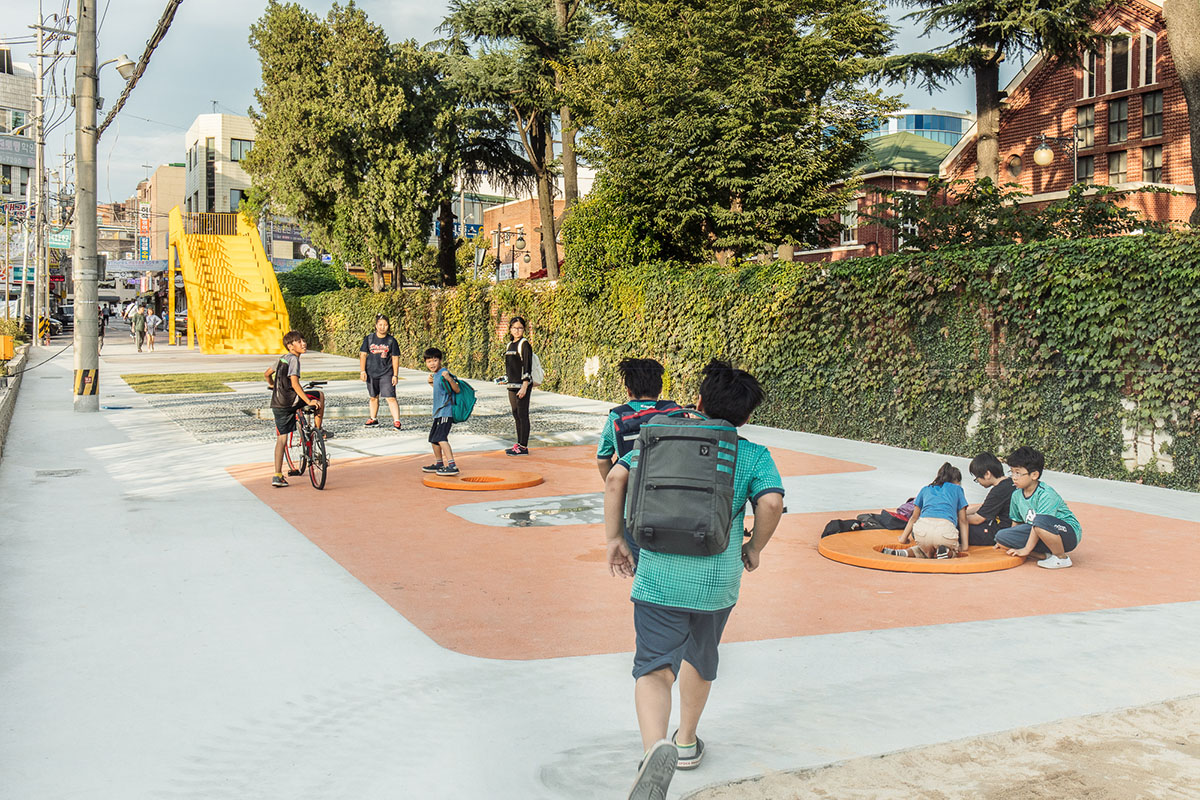
Project facts
Location: Gwangju, South Korea
Year: 2017
Client: Gwangju Biennial Foundation
Size and Programme: 960m2 public square
Design: MVRDV - Winy Maas, Jacob van Rijs and Nathalie de Vries
Design Team: Winy Maas, Wenchian Shi, Kyosuk Lee with Dongmin Lee, Bowen Zhu andSen Yang
Partners
Construction: Gongjeong Construction co.
All images © Gwangju Biennale Foundation
> via MVRDV
